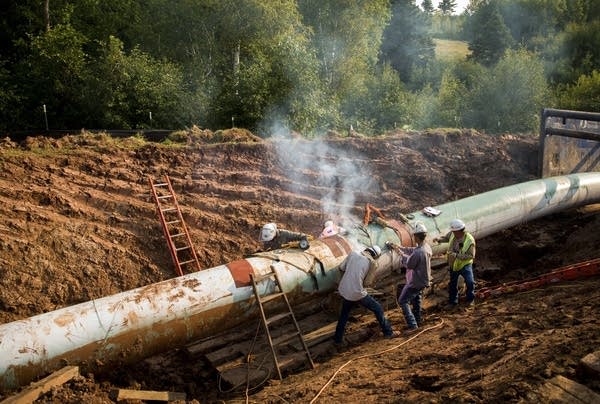Enbridge argues Line 3 oil pipeline needed for Minnesota, region

Contractors work on a replacement for Enbridge's Line 3 pipeline last month near Superior, Wis.
Derek Montgomery for MPR News file
Go Deeper.
Create an account or log in to save stories.
Like this?
Thanks for liking this story! We have added it to a list of your favorite stories.


